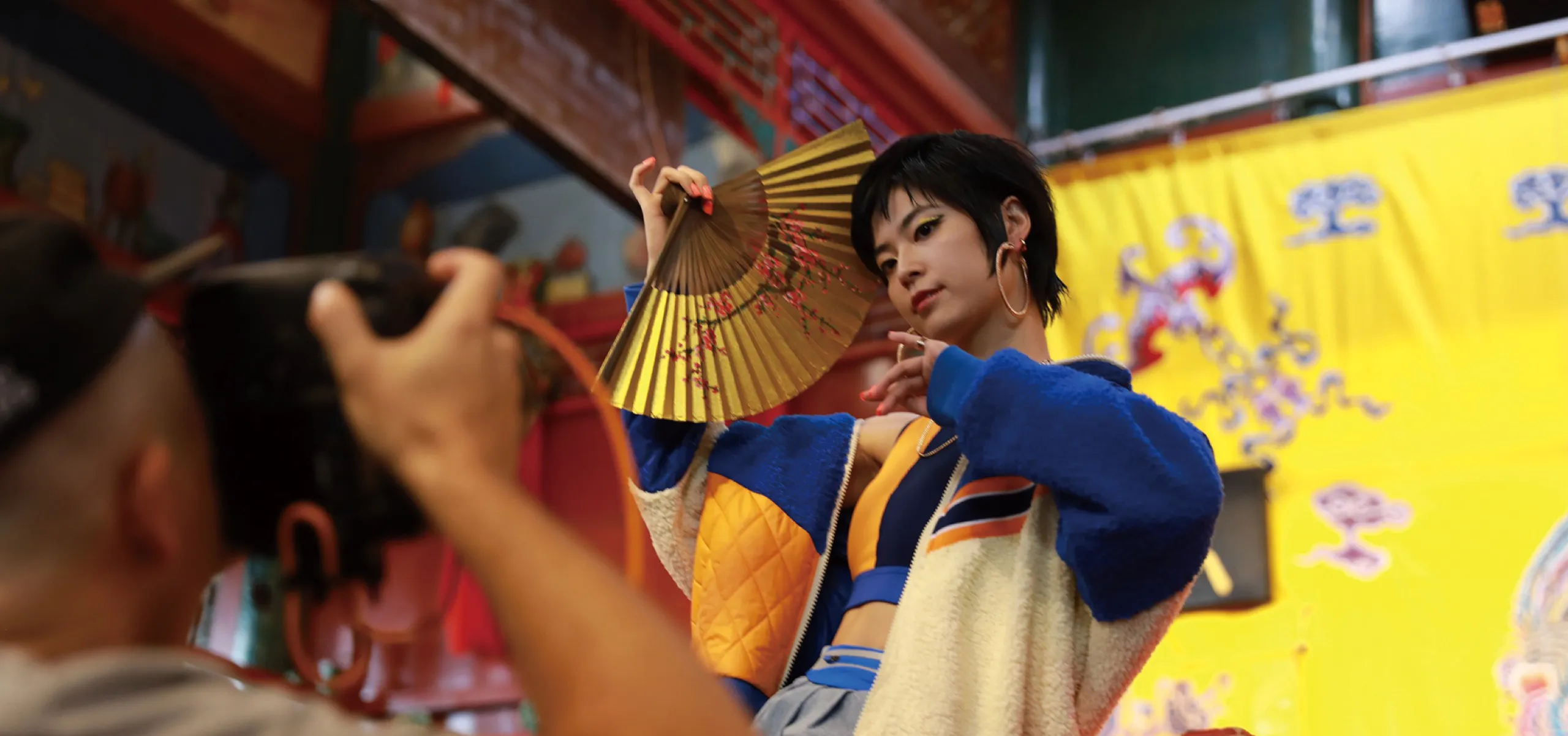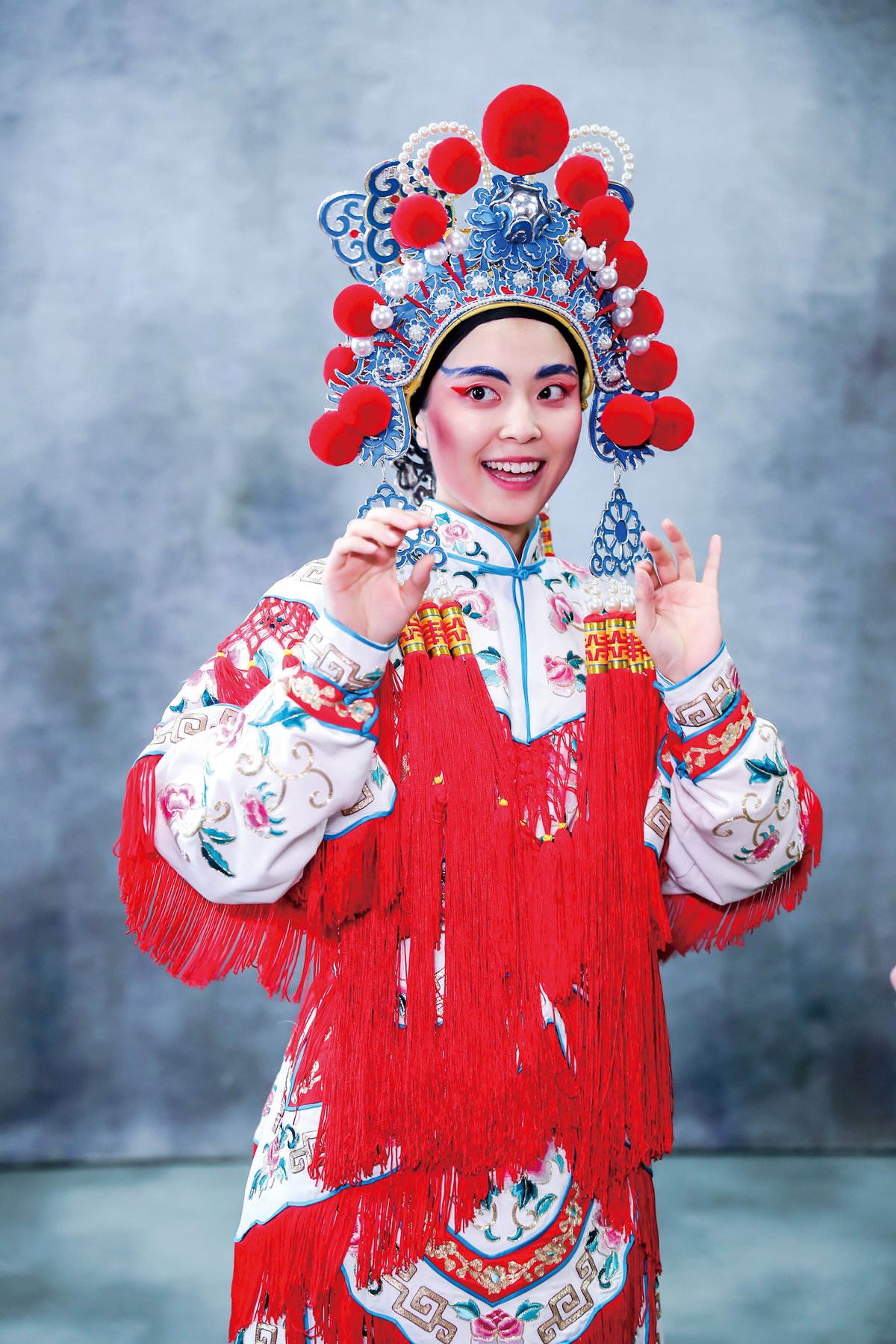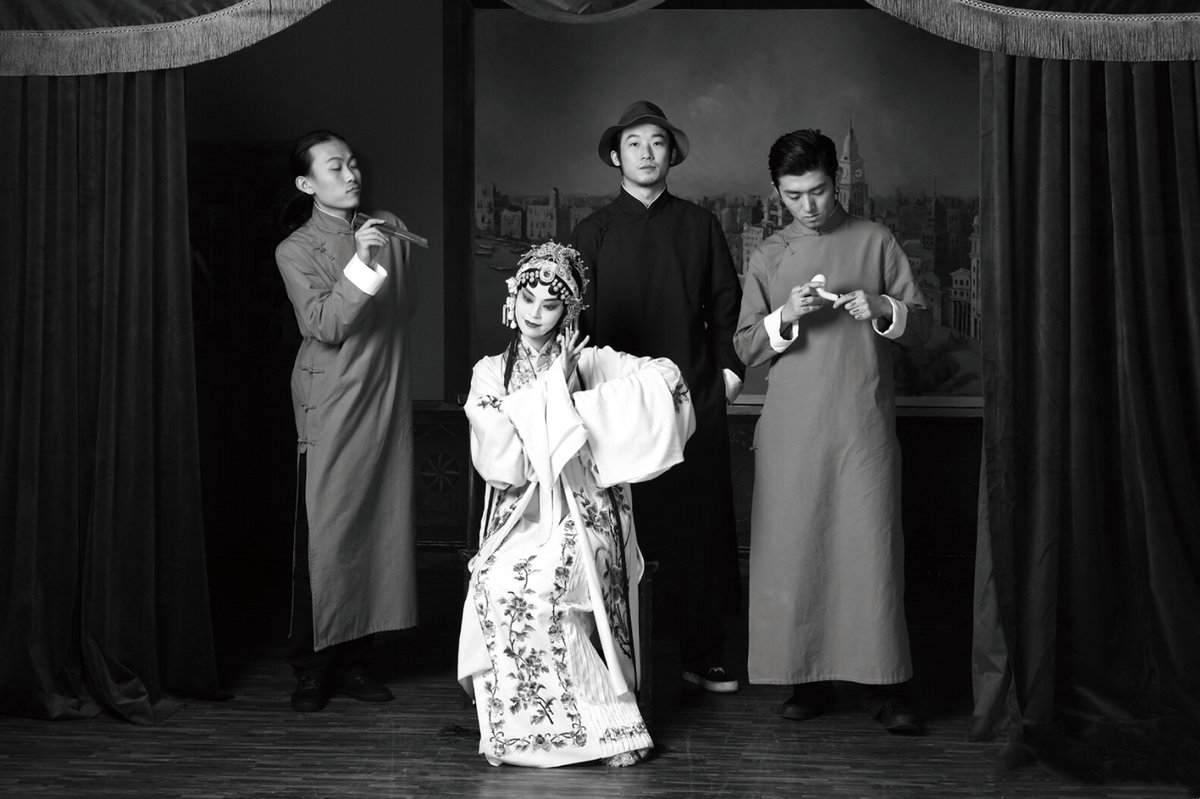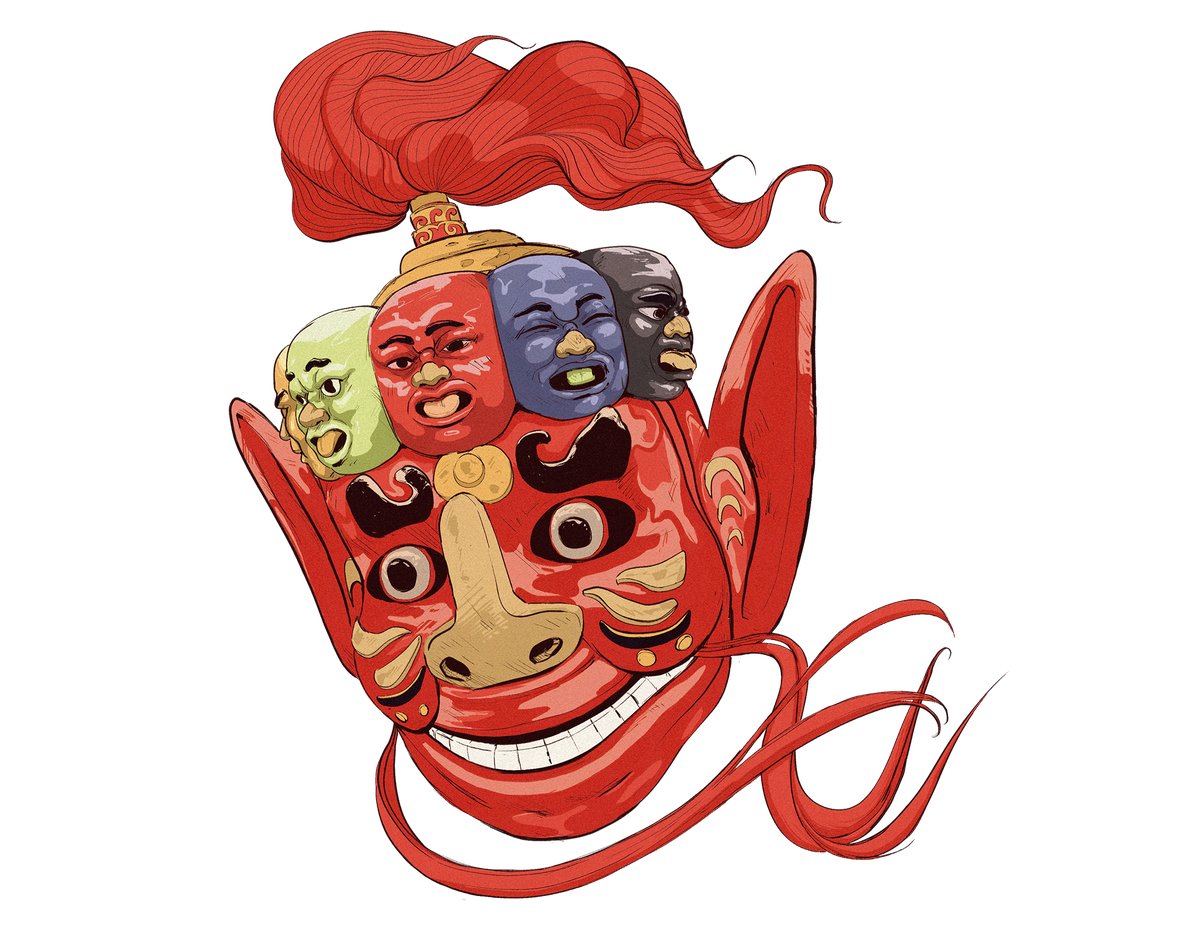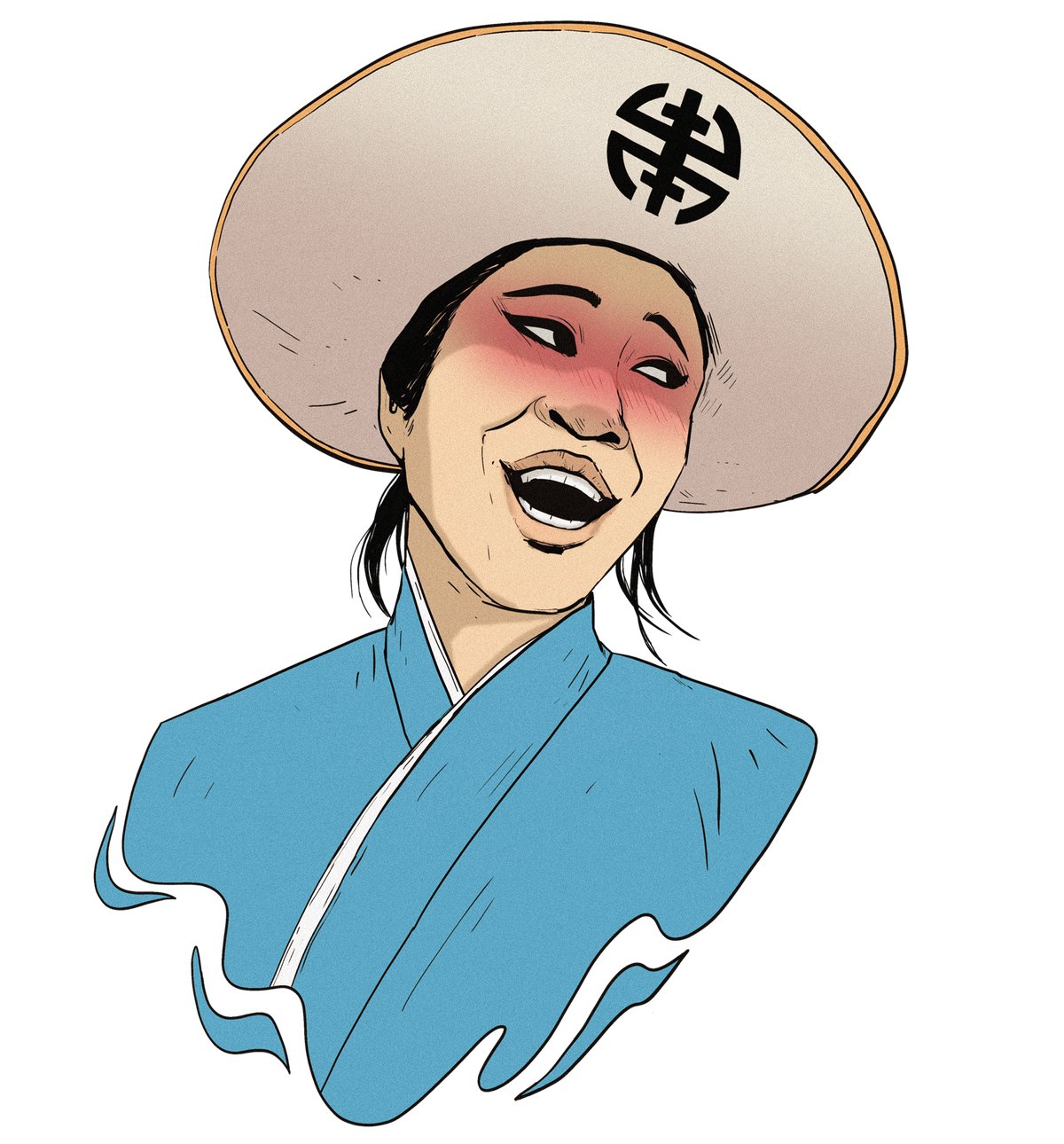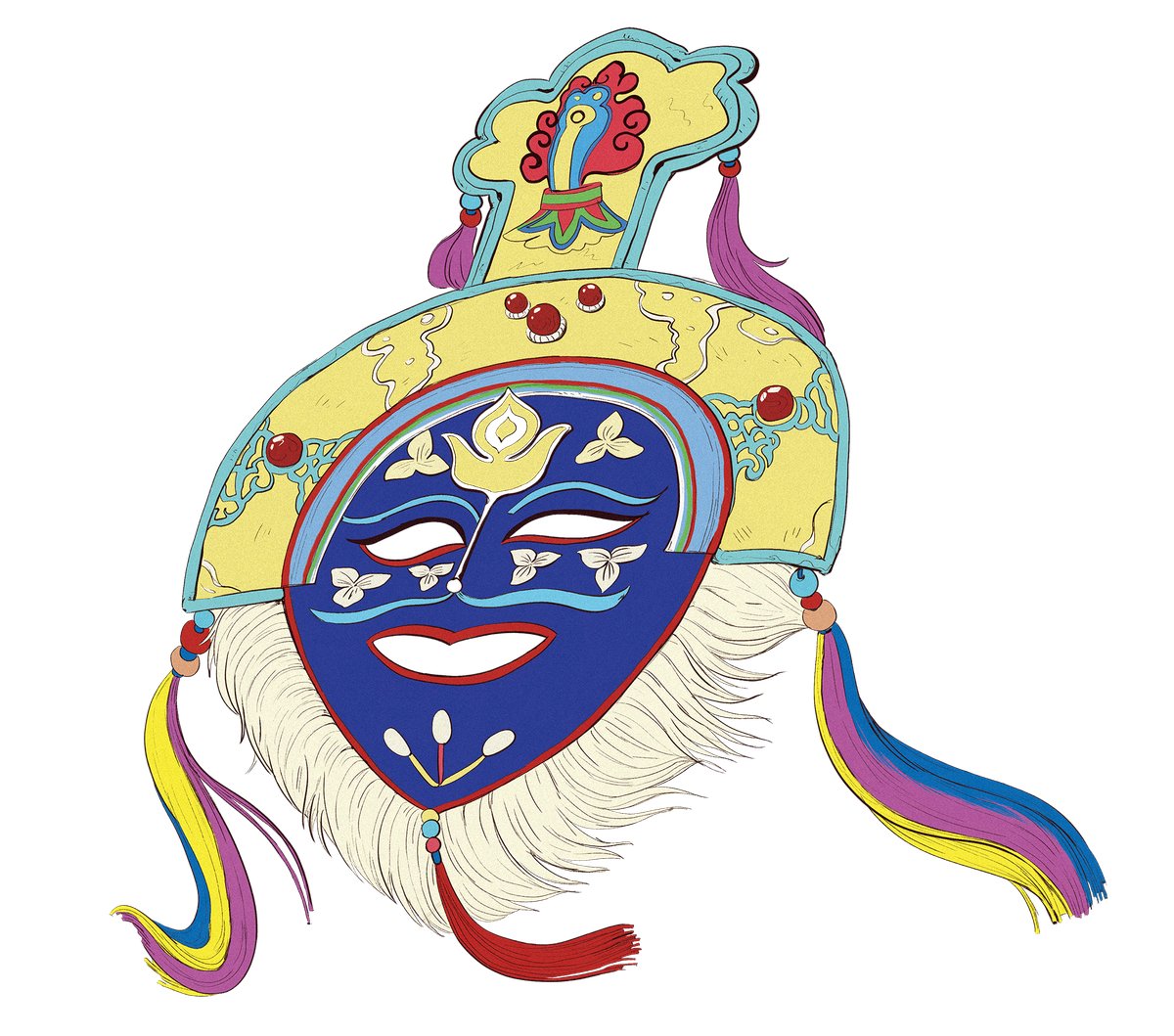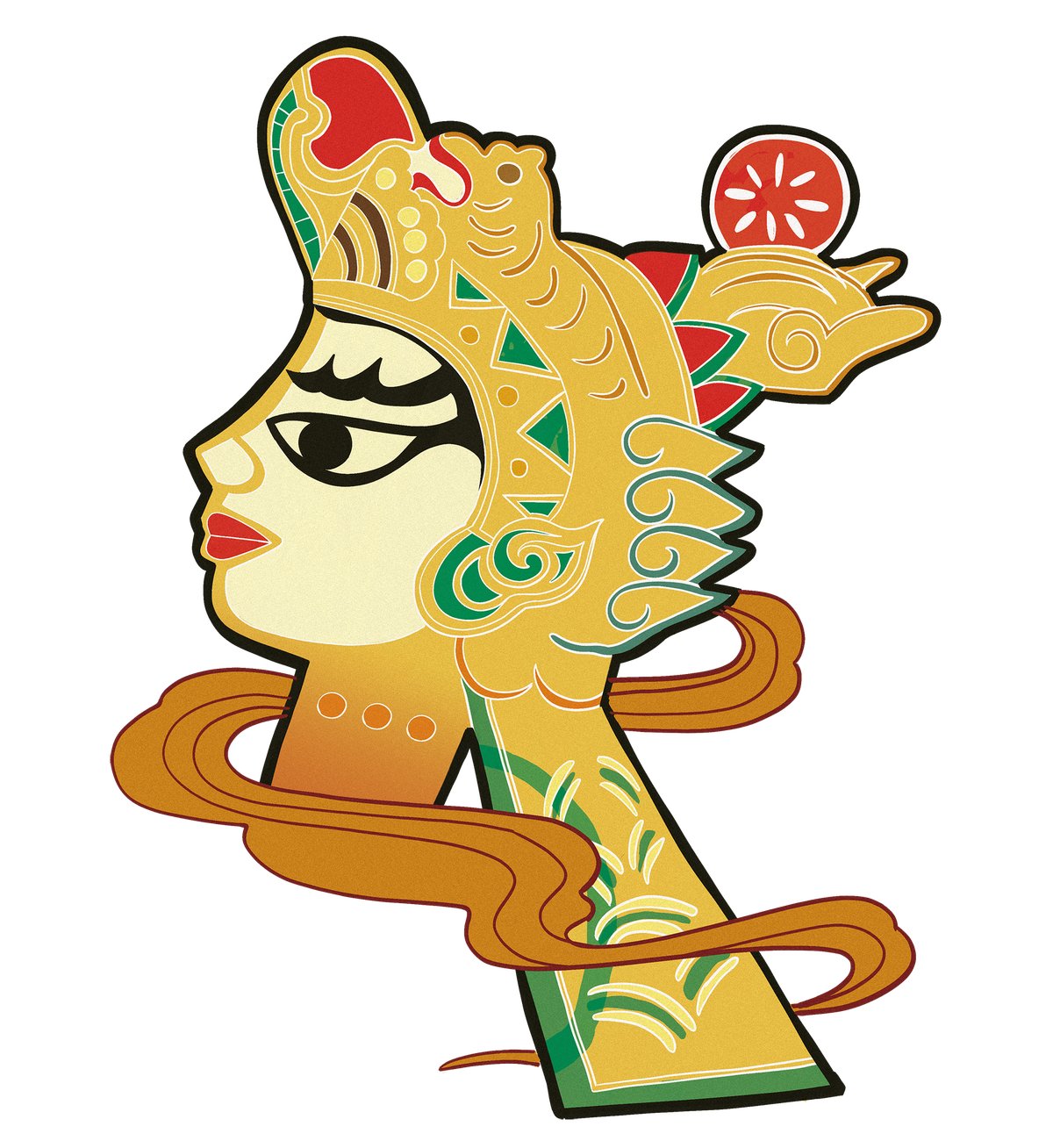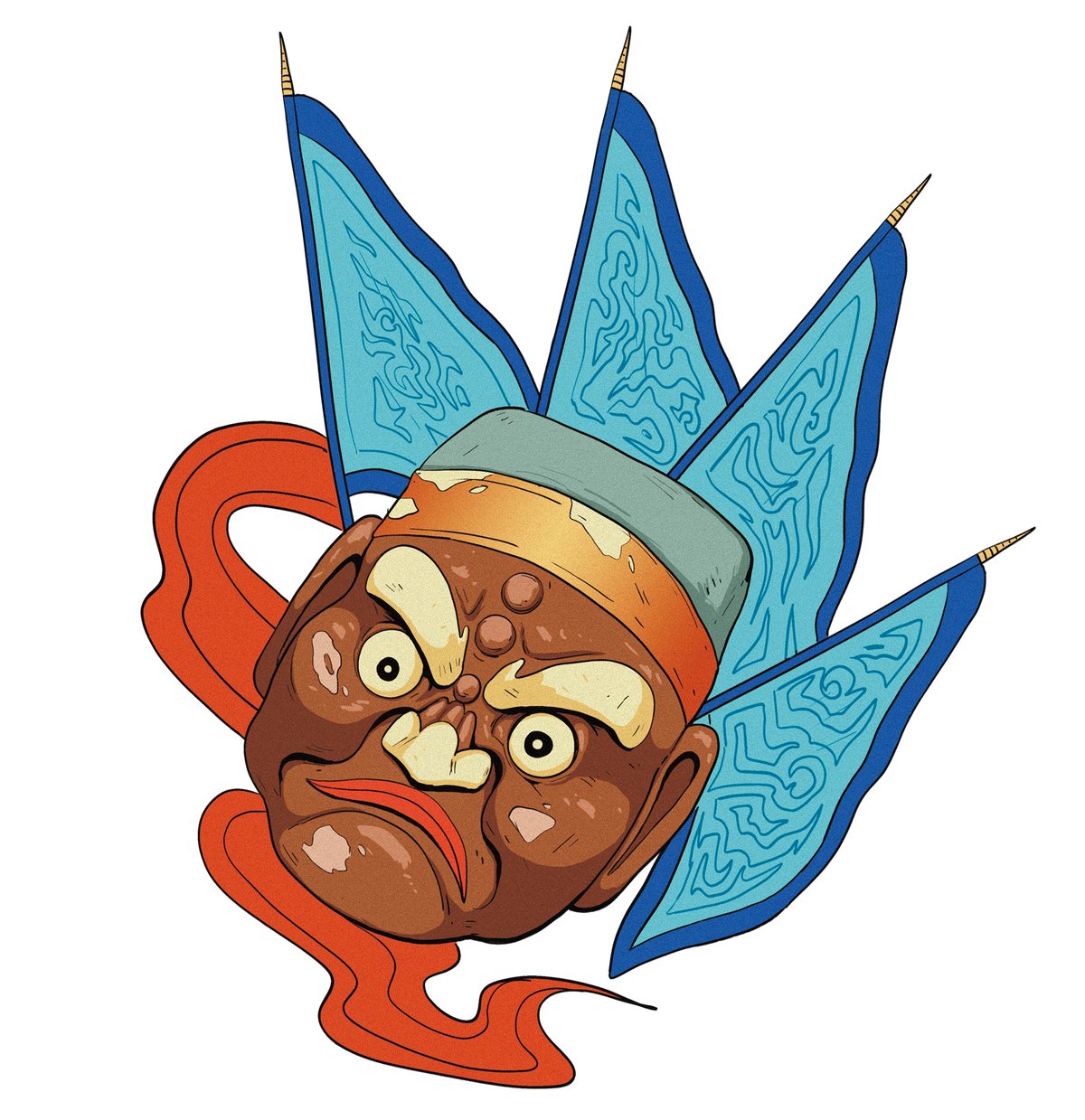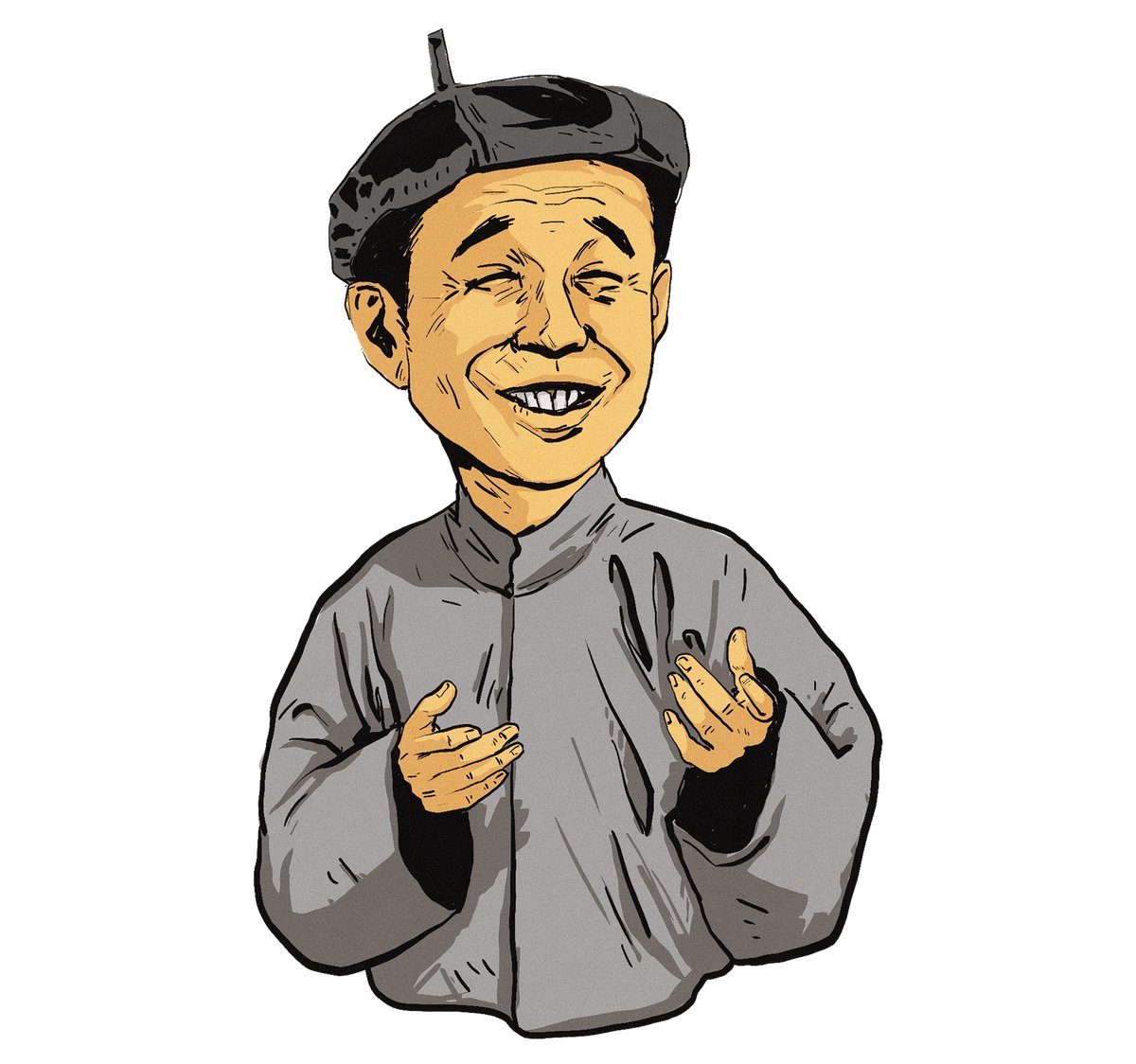A former Kunqu opera performer describes working in a disappearing art
From the age of 12, Huang Yanan usually started her mornings in tears. Every day at 6:30 a.m., she would report to the rehearsal rooms at the Shanghai Theater and Drama College for 60 to 90 minutes of mandatory morning exercise that typically consisted of overextended, painful leg stretches.
The rest of the day would be just as grueling. After breakfast, there were 90 minutes of practicing “blanket kung fu,” a martial arts technique involving flopping backward on stage like a blanket, requiring the performer to practice standing on two tables—a move that, if performed incorrectly, can cause ankle injuries.
Then there was weapons training, or bazi gong (靶子功), in which Huang and other actors practiced mock-fights with wooden spears. After lunch, the students took singing lessons, with some practicing on their own in the evening before lights-out at 9:30 p.m. “The staff would forcibly turn off the electricity meter to make sure [we went to sleep],” Huang, formerly an actor with the Shanghai Kunqu Opera Troupe, tells TWOC.
As a Chinese saying goes, “One minute on the stage takes 10 years of hard work off it.” Opera performers usually start training before puberty, so their bodies can better adapt to the basic positions and vocal exercises. In the past, the skills would often be passed down through the family.
In ancient China, opera performers were also part of the lowest social castes, preventing some of them from marrying into other groups. Even today, kids who train for opera often come from families that lack money to spend on helping their children excel in China’s exam-focused public education system, or want their children to learn a trade to support themselves and their relatives.
Huang did not choose opera for financial reasons: Instead, she became a performer almost by accident. At 5 years old, her family sent her to a performing arts school in her hometown of Guiyang, the capital of southwestern China’s Guizhou province, because she liked dancing. When she failed to get into the dance class, she says, a tearful Huang was approached by a Peking opera teacher and “tricked” into taking her class on the basis that it would be no different from singing and dancing.
In 2003, Huang, then 11 years old, was nominated by her teachers to attend a 10-year, government-sponsored program at a prestigious Shanghai training school for future performers of Kunqu, a local opera style. The school accepted just 60 trainees out of more than 20,000 applicants, but Huang made the cut. Around 20 students left the program after the first year, unable to stand the rigorous training schedule. But Huang stuck around, having imbibed “a sense of mission to promote opera,” she tells TWOC.
After her graduation in 2014, Huang was accepted into the Shanghai Kunqu Opera Troupe as an apprentice. The competition was fierce, and only half of her class passed the 30-minute entrance exam. Those who failed left the opera world entirely, disappearing back into normal life—finding jobs, starting businesses and families—as if the sacrifices of the last decade had never taken place.
Life As a Performer
When they finally got to perform on a professional stage, Huang and her former classmates felt devastated by how few people were in the audience. At 18, Huang had spent nearly three quarters of her life perfecting a 600-year-old craft, only to play shows to as few as seven people. “Some of them only came because they had free tickets, and one ticket was sold for just 10 yuan [around 1.50 USD],” she recalls.
Huang says Kunqu is facing an inevitable decline. “Opera has a threshold for appreciation,” she says. Many scripts include lines of ancient poetry, and performances can last more than three hours as audiences try to untangle the intricacies of the plot. As a result, she says, Kunqu struggles to compete with more modern forms of entertainment, or even humorous traditional crafts like cross-talk.
Eventually, Huang’s patience wore thin. After her yearlong apprenticeship came to an end, the troupe offered her a position as an actor, promising a job for life. Instead, she quit. “I could almost see my life in 20 years, and it was dull—a life of practice, performance, and more practice,” she says.
Since then, Huang has taught opera and performed on TV shows. Additionally, she has opened an opera-themed teahouse in Shanghai’s ritzy Xuhui district, offering visitors a chance to learn basic poses, vocal skills, and facial makeup. She continues to promote her old troupe’s performances on social media, and claims to have doubled their attendance numbers, especially among young people.
To Huang, opera must adapt to survive. She urges fellow performers to think outside the box by using newly popular technologies like livestreaming, by combining opera with increasingly widespread entertainments like street dance, and by viewing the art as a lifestyle aesthetic instead of a dusty, out-of-date tradition.
Nevertheless, Huang says, certain aspects of the craft must remain true to their roots, such as the librettos and melodies, or qupai (曲牌), which have been around for hundreds of years. “If we change its basic forms, the opera will not be opera anymore,” she explains.
Overall, Huang is pessimistic about the future of Kunqu. The current crop of teachers are aging and growing less able to train the next generation of performers. At the same time, opera’s diminishing material and cultural rewards are failing to entice young learners and their families to invest in the years of rigorous training.
“Young people are enjoying better livelihoods, and aren’t attracted by free tuition anymore,” she says. “There are lots of career options for them to choose from.”
Other Regional Operas
Nuo Opera 傩戏
Region: Popular in Anhui, Hebei, Hunan, and Guizhou provinces
Conservation status: According to People.cn, there were over 200 actors as of 2018 in Dejiang, Guizhou province, Nuo opera’s supposed “home county.” Unclear in other regions.
Language: Local dialect of the performance region
Ferocious-looking masks made of rough willow wood are a signature of Nuo opera, indicating its esoteric origins. Nuo opera evolved from an ancient sacrificial ritual called “Nuo sacrifice (傩祭),” which was part of folk totem-worship found in many parts of ancient China. It was usually performed in spring and autumn to expel evils and diseases, avert disasters, and bring luck and a good harvest by praying to gods and ancestors. The performers acted as mediums connecting gods, evil spirits, and common people. Over time, Nuo became a form of entertainment aiming to attract spectators.
Representative works: Seizing the Yellow Devil (《捉黄鬼》), The Child-Giving Immortal (《仙姑送子》)
Zijin Huachao Opera 紫金花朝戏
Region: Eastern Guangdong province
Conservation status: Only one professional troupe in Zijin county, Guangdong province, which calls itself “the only troupe in the world (天下一团)”
Language: Hakka dialect
The use of fans and handkerchiefs in Huachao opera gives it the nickname of “Guangdong’s errenzhuan” after the well-known vaudeville performance of northeastern China. The humorous and grassroots opera evolved from religious rituals in Zijin county in the Ming (1368 – 1644) and Qing (1616 – 1911) dynasties to expel disease, before changing to focus on folk stories that appeal to a broader audience. Common themes in Huachao opera are kindness, loyalty, and matrimonial freedom.
Representative works: Qiuli Picking Flowers (《秋丽采花》), Selling General Goods (《卖杂货》)
Tibetan Opera 藏戏
Region: Tibet Autonomous Region and Qinghai province
Conservation status: With central government funding, the number of actors of Tibetan opera increased from around 50 troupes in 2009 to 140 troupes and more than 3,000 actors by 2015, according to Chinanews.com.
Language: Tibetan
With 600 years of history, Tibetan opera performs fantastical tales found in Buddhist sutras. The performances begin with dancing to worship the gods and conclude with a blessing ceremony. Unlike other operas, where performers wear heavy makeup, Tibetan opera actors only wear traditional masks. Different colors on the masks represent different meanings—for instance, blue symbolizes justice and bravery. Tibetan opera performances typically take place in open squares or Buddhist temples, rather than on stage. Performances can last up to three days.
Representative works: Princess Wencheng (《文成公主》), King of Nuosang (《诺桑法王》)
Taishan Shadow Puppetry 泰山皮影戏
Region: Tai’an, Shandong province
Conservation status: According to China’s Ministry of Culture, the last living performer is 75-year-old Fan Zheng’an from Tai’an.
Language: Tai’an dialect
Taishan Shadow Puppetry, born around 600 years ago near the eponymous mountain in Shandong, features a single performer responsible for the singing, lighting, music, and puppeteering. Fan Zheng’an, the last living puppeteer, can play 10 instruments at once—including the gongs, drums, cymbals, and wooden fish—with a foot-pedaled machine called the shibuxian (十不闲). The puppets are created out of traditional paper-cutting, and there are no written scripts, so the performer relies on memory. The tales are based on local legends like the “Brave Stone (石敢当)” and other heroes who warded off evil spirits and were committed to justice and bravery.
Representative works: Taishan Brave Stone Fights Against Evils to Protect the Peace (《泰山石敢当为民除害保平安》)
Sai Opera 赛戏
Region: Shanxi, Hebei, and Shaanxi provinces, and Inner Mongolia autonomous region
Conservation status: Unclear; many troupes disbanded or began performing other operas from the late Qing dynasty to the early Republican era.
Language: Local dialect of the performance region
Primitive and rustic, Sai opera blends religious rituals and theater. Without any written scripts, the performances always focus on historical tales of military expeditions, emphasizing the theme of loyalty and filial piety. The opera originated in and was named after harvest rituals in northern Shanxi province in northern China. Sai opera troupes were family-run, and performing families were known as yuehu (乐户). They were viewed as part of the lowest caste in ancient China, and the daughters of yuehu were not allowed to marry people from
other castes.
Representative works: Mobilizing the Ghosts (《调鬼》), Beheading the Drought-Causing Demon (《斩旱魃》)
Shanghai Farce 上海滑稽戏
Region: Shanghai city, Jiangsu and Zhejiang provinces
Conservation status: More than 40 professional troupes in Shanghai alone by the 1940s, but less than 100 actors left today
Language: Shanghai dialect
Shanghai Farce is a relative newcomer on the folk opera scene, originating in the 1920s. Mainly covering social and cultural issues in urban life, Shanghai Farce combines both talking and singing, with jokes and scripts inspired by both historical incidents and current news. It originated from Shanghai monodrama (comedic storytelling performed by one person), and absorbed many influences from the cross-cultural atmosphere of 1930s and 40s Shanghai including Western vaudeville and operas from the Yangtze Delta region.
Representative works: Sanmao Learns to Do Business (《三毛学生意》), The Households of Seventy-Two Tenants (《七十二家房客》)
Why Young Performers are Giving Up On Years of Traditional Opera Training is a story from our issue, “Upstaged.” To read the entire issue, become a subscriber and receive the full magazine.





